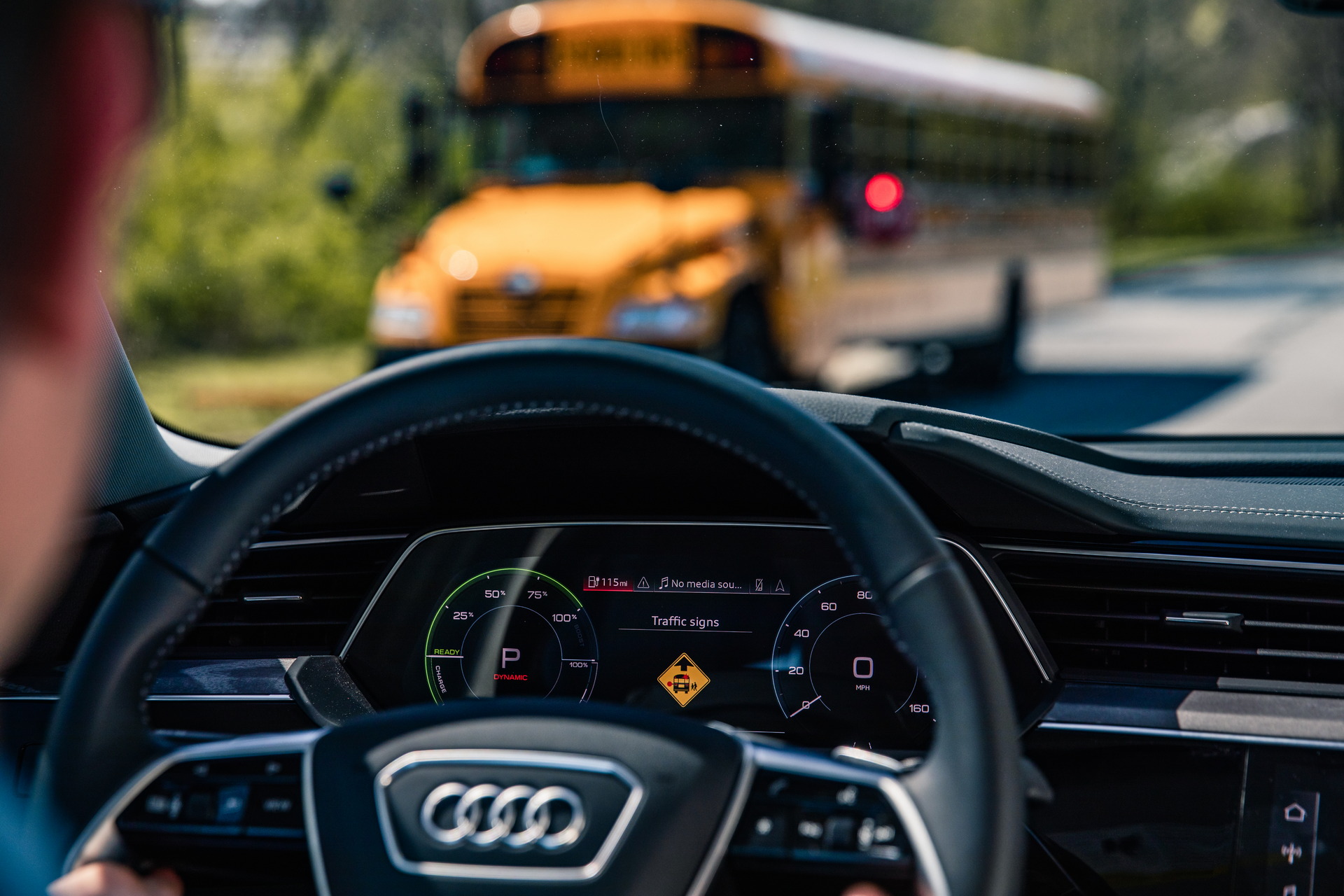Audi has been making significant strides in the way of autonomous vehicle technology, and their latest project is no different. The automaker is currently testing a system that can recognize school zones in order to make them safer for children and pedestrians alike.
Audi of America has partnered with Qualcomm Technologies, Commsignia, Applied Information, Blue Bird, the Fulton County School System, the city of Alpharetta, Georgia, and Temple, Inc. on this school-zone focused Cellular Vehicle-To-Everything (C-V2X) technology, which uses cellular signals to allow vehicles to communicate with the surrounding vehicles and infrastructure.
Read More: Audi Offers Navigation And Wifi Subscription For $85 A Month
The way it works is as follows: an Audi E-Tron Sportback and a propane-powered Blue Bird school bus are both equipped with the C-V2X system. This system communicates with the Roadside Unit (RSU) found in the school zone speed limit sign, and subsequently alerts the Audi’s driver of the zone’s presence with visual and audible warnings to slow down.
Likewise, when the Blue Bird bus extends its stop arm, it alerts all oncoming traffic equipped with the C-V2X system that children may be entering or exiting the bus, and that they need to stop until the arm goes away.
See Also: Audi’s Charging Hub Could Be The “Gas” Station Of The Future
The initial rollout is taking place within the Fulton County School System, specifically in Alpharetta, Georgia, where they currently have Applied Information’s infrastructure equipped with the new C-V2X system. The 78.5-square mile testing zone includes over 130 connected traffic signals that use LTE and 5G networks to keep in constant communication with each other and with the relevant vehicles.
The goal of this technology is to make school zones safer for children and other vulnerable pedestrians, who, according to Audi’s research, fall victim to over 25,000 injuries and 100 fatalities each year. Most notably, it should prevent stop-arm violations, which, also according to Audi’s research, are one of the most significant dangers to those groups, with an estimated 17 million taking place in 2019 alone.






